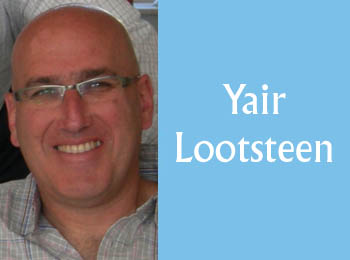Spending time away from your usual surroundings sometimes gives you a better appreciation of where you’re from and where you plan to continue life’s journey.
In November, I spent almost three weeks in North America, mostly in Canada. Speaking at Reform congregations and schools in Toronto and Southern Ontario, as well as in Montreal, I was a guest of ARZA Canada, “the Zionist voice of the Canadian Reform movement.”
I came away with a deeper awareness of Reform Jews’ devotion to Israel (and that of Canadian Jews in general), but also of their legitimate concerns and frustrations regarding ongoing trends in Israel, particularly in matters of synagogue and state. The lack of any genuine state recognition for liberal, egalitarian strains of Judaism in the Jewish state rightfully exasperates them, as it does like-minded Israelis, myself included, who consider themselves liberal Jews. The enduring Orthodox monopoly on anything religious in Israel is infuriating, alienating millions of Jews around the globe.
My message to the people I spoke to was that we must broaden and deepen our partnership, using the strengths we have on both sides of the Atlantic to endeavour together to achieve a much more religiously pluralistic Israel. Many of us here are willing to work on expanding liberal Judaism around the country, encouraging more sabras to join us and fighting the legal and other battles necessary to succeed.
Our brethren in the Diaspora, particularly in North America, should support us, and not only financially. Because of their sheer numbers, they ought to use the leverage at their disposal to pressure our government into making the changes necessary to make Israel a place where all Jews feel at home.
On a more personal level, while in Canada, I had several experiences that helped me better understand my roots, but also where I am today.
It always amazes me how easily I fit back into Toronto, where I spent most of my childhood. Getting into a car at Pearson International Airport, I can still navigate the highways and byways and enjoy seeing places central to my past – houses I lived in, schools and shuls I spent much time in, not to mention restaurants, stores and malls, streets and neighbourhoods, as well as wonderful family and friends who are still very much part of my life.
On this trip, I spent enough time in the city to also realize again what a wonderful Jewish community Toronto has and how one can live a genuinely rich Jewish existence there.
But a couple of incidents also helped me recognize some other things. After one of my talks, I was chatting with some of those present when someone asked, “How is it to be back home?” My initial reaction was to look over my shoulder, certain the question had been addressed to someone behind me. When I realized I was the one being asked, I responded in no uncertain terms (and I hope not impolitely) that Toronto was no longer my home, but rather Jerusalem is.
That became clearer later in my visit. Toward its end, Israel undertook Operation Pillar of Defence in response to incessant rocket attacks into the southern part of the country from Gaza. Hamas’ response was to send hundreds of missiles towards civilian targets within a growing range of fire, with long-range projectiles aimed at Tel Aviv.
On the first day of hostilities, I told people that Jerusalem is the safest place to be in Israel in these situations, as Hamas would never target our capital and risk hitting Muslim holy sites. The next day, I was on my way to meet a friend who was to show me around the new Jewish community centre in Vaughan. On the way, I was listening to CBC Radio when news of air raid sirens in Jerusalem and an explosion were announced. I froze, parked the car and phoned home to make certain my wife and kids were OK.
There’s a link between both parts of my story. Israel is the place I now happily and proudly call home, where my family and I enjoy a good life. Sometimes it requires doing battle with true enemies, such as Hamas. And it’s still a work in progress, where some of us are struggling to make it a more pluralistic place, one we can feel even more at home in. In that vein, we Israelis can still learn much from you, our brothers in the Diaspora.
